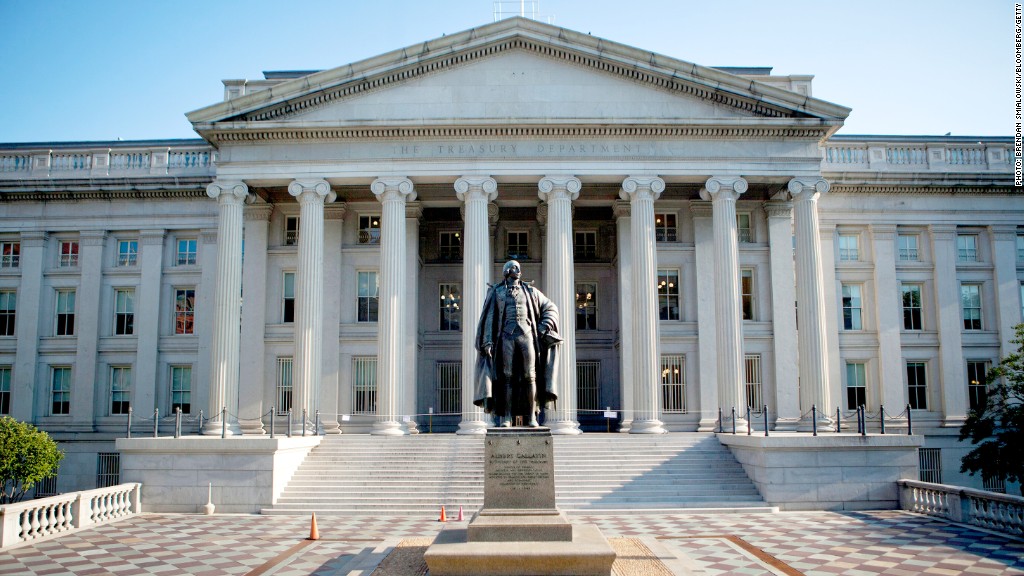
The U.S. Treasury Department booked a $114 billion surplus in April, the largest for that month since 2008, according to the latest estimates from the Congressional Budget Office released Wednesday.
April typically brings an influx of receipts as Americans file their tax returns.
For the first seven months of this fiscal year, which began on Oct. 1, the CBO estimates the country has racked up a $301 billion deficit, which is $187 billion lower than it was for the same period last year.
Federal coffers saw a 7% increase in individual income taxes and payroll taxes, a 15% increase in corporate income taxes, and a 37% increase in money paid to Treasury by the Federal Reserve.
Related: Deficit now expected to be even lower
Meanwhile, overall spending fell by 2%.
Areas that saw the biggest drops included unemployment benefits and homeland security (both down 31%), agriculture (down 12%) and defense spending (down 5%).
Much of the drop in overall spending is attributable to bigger payments from Fannie Mae and Freddie Mac to Treasury. According to the weird accounting rules of the federal budget, those payments are counted as "negative" spending.
Offsetting the spending decline were increases in Social Security (up 5%) and Medicaid (up 9%).

The trend in higher tax receipts and lower overall spending has been in effect for awhile, because of the economic recovery and spending restraint enacted by Congress.
Last month, the CBO projected that the 2014 shortfall would decline to 2.8% of gross domestic product -- or $492 billion. That is well below the 4.1% -- or $680 billion -- recorded for fiscal year 2013.


